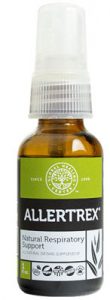It may have turned out to be a challenging year but summer’s here, at least. And yet, for some, summer brings with it natural challenges each and every year. While many are enjoying being outdoors and enjoying all manner of activities in the sun, others find themselves trying to mitigate the effects on their lives of seasonal allergies; most commonly, of course, hay fever and the allergic reactions it brings due to a dramatic increase in pollen.
It’s estimated that as many as 13 million people in the UK are hay fever sufferers – that’s almost one fifth of the country’s entire population – while around 35 million Americans put up with seasonal allergies every year (just over 10% of the total US population). So, make no mistake; environmental allergies and, with them, symptoms like sneezing, itchy eyes, scratchy throats and a general foggy lethargy, are a big deal for many people.
Preventing seasonal allergies – and their symptoms
As you’re no doubt aware, many sufferers of seasonal allergies simply reach for temporary medication to mitigate the symptoms they bring. However, finding exactly the right treatment for you as an individual is far from an exact science – indeed, from one year to the next, millions never really come across a course of tablets (or other medication) that satisfactorily does the trick in these spring and summer months.
So, is there another way? Well, have you ever considered a far more natural approach to trying to reduce the symptoms of hay fever and similar seasonal allergies – and even preventing their occurrence, in the first place? Here are some ideas and tips you might want to try if the warmer, drier weather of May, June and July can make your life a misery:
- Improve your diet – it may seem unlikely at first, but an improved diet can help ward off allergies and that’s because the healthier your body is, the better capable its immune system is to counter the everyday allergies it encounters; indeed, scientific research on the Greek island of Crete concluded that nasal allergies barely existed there, seemingly because native islanders’ diets are focused around fatty acid-packed fish, cold-pressed olive oil, nuts, fruits and vegetables, ensuring the diet’s antioxidant-rich and great for supporting the health of the upper respiratory tract
- Purify your home and remove your carpets – tackling your living environment and trying to rid it of pollen and mites is another very important step in the battle to keep seasonal allergy symptoms in check; to do so, you might consider investing in an air purification system (with a UV/ negative ion filter) and, considering carpets naturally retain pollen, dust and pet dander, replace them with non-toxic hardwood/ cork flooring
- Go for organic bedding – the same goes for your home’s bedding; you’re highly advised to purify your haven of rest by purchasing a high-quality, allergy-free cover for your mattresses and pillows and to wash your bedding once a week to kill and, thus, prevent the accumulation of dust mites
- Use organic cleaning products – if you’re prone to allergies, then you might want to re-think the cleaning products you use, given the chemicals and fumes from many supermarket-purchased cleaning agents can help trigger allergic reactions, especially in the spring and summer months; a better bet, then, is to plump for non-toxic, organic cleaning products
- Try taking oregano oil – for many people, it seems that oregano oil contributes to feeling better when suffering from the aforementioned (and widely known) common symptoms of seasonal allergies; thanks to its ability to reduce histamine levels in the blood, the oil is liable to combat allergic reactions, including the likes of skin swelling
- Get mould out of your home and office – sure, pollen’s an obvious cause of spring/ summer allergies but mould plays its role too; an increase in heat in conjunction with a rise in humidity tends to see mould form in indoor working and living spaces, so a good idea is to invest in a high-quality dehumidifier in an effort to prevent mould from forming in the first place.
Hay fever supplements
In addition to trying one – or, indeed, all – of the above suggestions, there is another course of action open to you in the fight against seasonal allergies (should you want to avoid relying on the likes of antihistamine medication); that’s to go the natural supplement route.
Here, at The Finchley Clinic, we’ve put together a handy kit of high-quality, entirely naturally-sourced supplements that, yes, might just help you get your sanity back this spring/ summer, in this most trying of years for so many. The Hayfever ‘Get Your Sanity Back’ Kit consists of:
- Allertrex– a blend of powerful botanical ingredients and essential oils that support normal function and cleansing of the lungs, sinuses and respiratory tract
- HistX– combines Vitamin C and Quercetin in a liposomal form, ensuring almost perfect absorption as a result of the unique and industry leading liposomal process; together, Liposomal Quercetin and Vitamin C make for an amazing one-two in battling allergies and inflammation, anywhere in the body
- OptiBac Probiotics For Daily Wellbeing Extra Strength– contains the potent probiotics L. acidophilus NCFM and B. lactis Bi-04; a recent clinical trial has shown this specific probiotic combination reduced the symptoms of nasal irritation in birch tree pollen sufferers.

